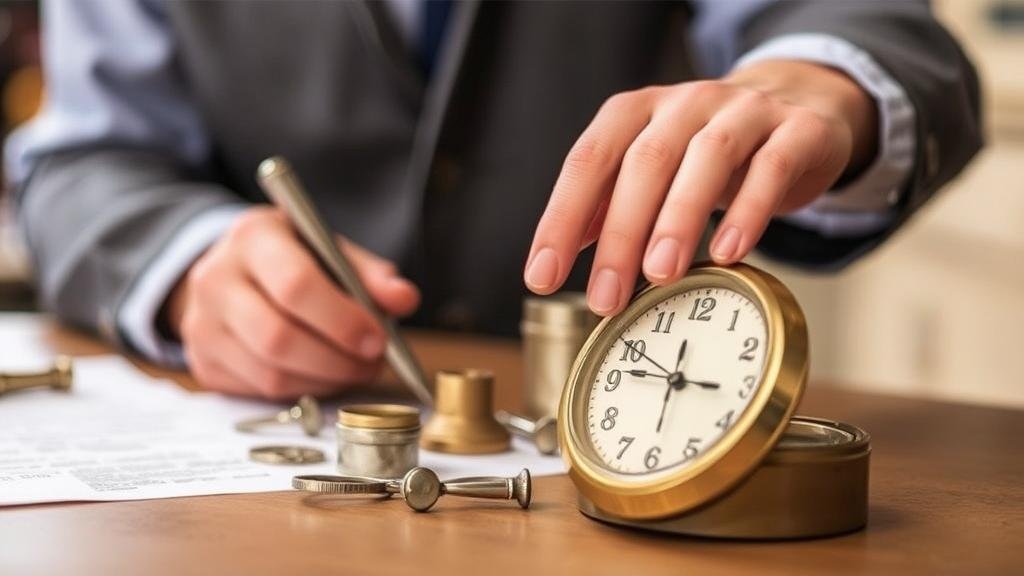How to Work With Appraisers to Determine the Value of Your Finds
How to Work With Appraisers to Determine the Value of Your Finds
Determining the value of collectibles, antiques, art, or other unique finds can be a nuanced process, requiring both expertise and an understanding of the market. Engaging with professional appraisers is essential in accurately assessing the worth of these items. This article will guide you through the critical steps and considerations when working with appraisers, ensuring you achieve the best possible outcomes for your valuable possessions.
Understanding the Role of an Appraiser
Appraisers are professional experts who assess the value of items based on various criteria, including market demand, condition, rarity, and provenance. r insights come from extensive training and often, years of experience in specific areas like fine art, vintage cars, or collectibles. When selecting an appraiser, ensure they possess the appropriate credentials, such as certification from recognized organizations like the American Society of Appraisers (ASA) or the International Society of Appraisers (ISA).
Example: An appraiser with a background in modern art and affiliations with ASA may provide a more in-depth evaluation if you are seeking to appraise a contemporary abstract painting, compared to a generalist who assesses a wider range of items.
Pre-Appointment Preparations
Before meeting with an appraiser, thorough preparation can enhance the appraisal process. Consider the following steps:
- Research Your Item: Gather as much information as possible about the items history, condition, and any documentation it may have. This includes previous appraisals, receipts, or photographs that provide context.
- Set Clear Objectives: Determine the purpose of the appraisal. Is it for insurance, resale, estate planning, or simply to settle a curiosity? Your goals will influence the type of appraisal approach required.
- Select Multiple Appraisers: Its wise to consult at least two to three different appraisers, especially for high-value items, to ensure diverse opinions and valuations.
During the Appraisal Process
When meeting with the appraiser, clear communication is vital. Address the following areas effectively:
- Provide Context: Share any historical context or provenance related to your item. Understanding the items background is crucial for accurate valuation.
- Ask Questions: Inquire about the appraisal methodology. A reputable appraiser should outline their process, which typically includes comparables, market trends, and the evaluation of condition.
Example: If you own a vintage Rolex watch, the appraiser might explain how they will compare it to similar models sold at auction, providing you with insight into current market conditions that affect value.
Post-Appraisal Actions
After receiving the appraisal, consider the following next steps:
- Review the Appraisal Report: Make sure the report is clear, well-structured, and contains all relevant data, including a detailed description of the item and the basis for the valuation.
- File for Insurance: If the appraisal is primarily for insurance purposes, contact your insurance provider immediately to discuss coverage options based on the appraised value.
- Plan for Future Appraisals: Understand that appraisals can change over time due to market fluctuations. Schedule regular appraisals for significant items to maintain accurate valuations.
Building a Long-Term Relationship with Your Appraiser
Establishing a good rapport with your appraiser can be advantageous for future valuations or purchases. Regular communication can lead to improved understanding and trust, which will yield better outcomes in future interactions.
Example: If you develop a strong relationship with your appraiser, they may provide you with exclusive updates on market trends or upcoming auctions that could provide insight into your items resale potential.
Conclusion
Working with appraisers can enhance your understanding of the value of your finds, whether they are antiques, art, or collectibles. By being well-prepared, communicating clearly, and maintaining a professional relationship with appraisers, you can ensure that you receive accurate and beneficial appraisals. Take actionable steps to engage with qualified professionals and remain proactive in monitoring the value of your items over time. investment in a professional appraisal can lead to better financial decisions and the proper care of your prized possessions.



